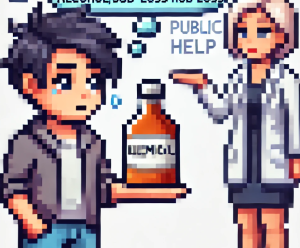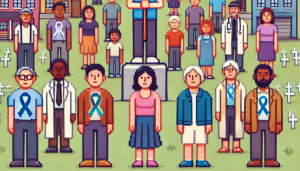
How Loneliness Impacts Oral Health in Older Adults
In today’s world, the conversation about health often centers around heart disease, diabetes, or mental health, but rarely do we hear about the mouth’s role in our overall well-being. Yet, new research shows that oral health is not just about clean teeth and gums; it’s intricately connected to our emotions, particularly feelings of loneliness and satisfaction with life. For older adults, these connections can be profound, influencing not only their quality of life but also their general health outcomes.
The Silent Struggle: Loneliness and Oral Health
Loneliness is often described as a silent epidemic, especially among older adults. As people age, they may face retirement, the loss of loved ones, or physical limitations that reduce their social interactions. This loneliness isn’t just a fleeting feeling; it can manifest in chronic ways that deeply affect one’s physical health. Recent research shines a spotlight on a new dimension of this issue—how loneliness influences oral health.
The study examined data from the Health and Retirement Study (HRS), focusing on older adults in the United States. Researchers identified three distinct groups based on their levels of loneliness and life satisfaction: those who were not lonely and satisfied with life, those who were lonely but satisfied, and those who were both lonely and dissatisfied. The findings revealed a clear pattern—those who were lonelier and less satisfied with life had significantly poorer oral health outcomes.
Connecting the Dots: Loneliness and Poor Oral Health
You might wonder, “How can loneliness affect something as physical as oral health?” The answer lies in the complex interplay between our emotional and physical states. Loneliness can lead to a decrease in motivation to maintain personal health, including dental hygiene. For example, someone who feels isolated might neglect brushing their teeth regularly or delay dental visits due to a lack of social support or simply because they don’t see the point in self-care.
Moreover, loneliness can contribute to chronic stress, which is known to have a host of negative health effects, including on oral health. Stress can lead to behaviors like teeth grinding or clenching, which can damage teeth over time. It can also weaken the immune system, making the body less effective at fighting off infections, including those that occur in the mouth.
The study found that older adults who were lonely and dissatisfied with life had nearly five times the odds of reporting poor oral health compared to those who were not lonely and satisfied. This group also reported a higher oral health-related quality of life (OHQOL) score, meaning that their dental issues had a more significant impact on their day-to-day life.
Why This Matters: The Broader Impact of Oral Health
Oral health is more than just a matter of aesthetics or comfort; it’s a critical component of overall health. Poor oral health can lead to difficulty eating, speaking, and socializing, which further compounds feelings of loneliness and isolation. For older adults, this can become a vicious cycle—poor oral health leads to more isolation, which in turn leads to even worse oral health.
Additionally, poor oral health has been linked to more severe health issues such as heart disease, diabetes, and even dementia. This makes it all the more important to address oral health as part of a holistic approach to health and well-being, particularly in vulnerable populations like older adults.
Practical Implications: What Can Be Done?
The findings of this research underscore the need for healthcare providers to take a more integrated approach when caring for older adults. Dentists, in particular, should be mindful of their patients’ psychological states. Poor oral health in an older adult might be a sign of underlying loneliness or dissatisfaction with life.
Healthcare providers could consider screening for loneliness during routine check-ups and providing referrals to social services or mental health support when needed. Simple interventions, like connecting older adults with community groups or activities, can make a big difference. Additionally, ensuring access to affordable dental care is crucial. Many older adults may avoid the dentist due to financial constraints, especially as dental care is often not covered by Medicare.
On a broader scale, public health initiatives should aim to raise awareness about the importance of oral health and its connection to overall well-being. Programs that provide affordable dental care and encourage regular check-ups can help prevent the downward spiral of poor oral health and loneliness.
Join the Conversation
- Have you noticed changes in your or a loved one’s oral health as they age? How do you think loneliness has played a role?
- What steps have you taken to maintain social connections as you or your family members grow older? Share your experiences in the comments below or on social media using the hashtag #LonelinessAndHealth.
Conclusion
Loneliness is a powerful emotion that can shape our health in ways we might not expect. For older adults, the impact of loneliness on oral health is a critical issue that deserves more attention. By understanding and addressing the emotional and psychological factors that contribute to poor oral health, we can help ensure that our aging population enjoys not only longer lives but healthier, happier ones too.
Join the Community – Get Your Weekly Public Health Update!
Be a health leader! Subscribe for free and share this blog to shape the future of public health together. If you liked this blog, please share it! Your referrals help This Week in Public Health reach new readers.



